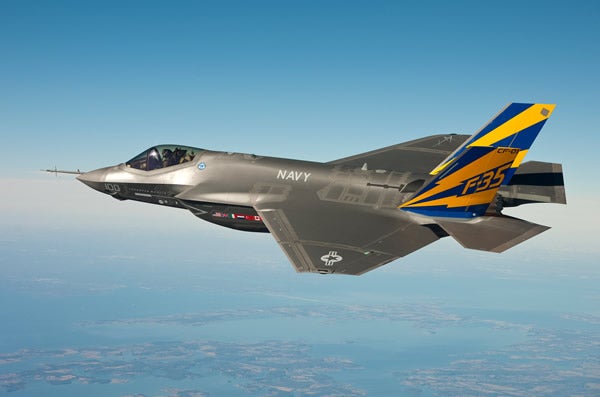F-35 Survives
Sarah Wallace /
During markup of the National Defense Authorization Act, many feared that funding for the F-35 would be stripped from the bill. But conservatives successfully blocked efforts to slow down the process. This is a huge win for U.S. national security.
The F-35 Lightning is set to become the world’s leading Joint Strike Fighter (JSF), providing safety from the world’s leading threats. As terrorism, nuclear threats, and isolated conflicts become the norm, the need for technologically advanced aerial systems should be premier on the Pentagon’s priority list. Under Secretary of Defense Frank Kendall calls the F-35 “our highest priority conventional warfare weapon system.”
A fifth-generation multi-use strike fighter, the F-35 is a joint project of the U.S. and nine other collaborating nations. This global partnership on the F-35 represents a turning point in modern weaponry.
The F-35 offers advanced reconnaissance capabilities, stealth, tactical maneuverability, and air-to-surface missiles—essentially ensuring that the enemy would not detect U.S. military presence until the jet delivers the attack. It also helps the economy by enlisting 1,400 domestic suppliers in 46 states and creating over 125,000 jobs for Americans.
The F-35 is set for initial operations capability in 2015 for the Marine Corps, 2016 for the Air Force, and 2018 for the Navy. The U.S. should continue support for this multi-role aircraft as part of a protect-and-defend strategy. The price tag is lofty, but the F-35’s advanced capabilities make it worth the cost.
Sarah Wallace is currently a member of the Young Leaders Program at The Heritage Foundation. For more information on interning at Heritage, please click here.

